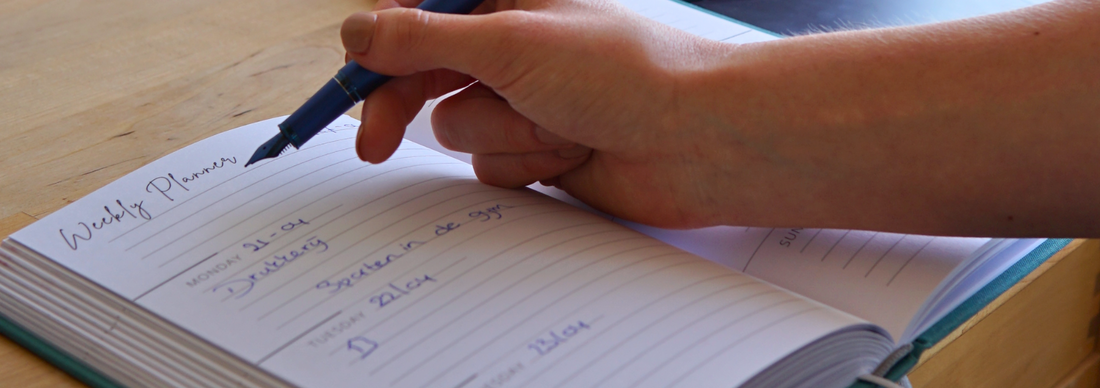
Why planning works better than motivation: The secret behind consistent productivity
Iris HofmanShare
We all know it: on Monday, you're determined to achieve your goals. By Wednesday, that same goal suddenly feels a lot less urgent. Your motivation? Gone. And that's precisely the problem. Motivation is great... while it's there. But can you rely on it?
What is reliable? Good planning. Where motivation is fickle, planning provides stability. It's the difference between hoping you'll find time and consciously making it. And that's where true productivity begins.
The problem with motivation
Motivation is often at its peak at the start of a new project. You're bursting with ideas, energy, and good intentions. But as soon as the novelty wears off, motivation quickly wanes. Suddenly, a hundred other things demand your attention. Your energy drops, your mind fills with thoughts, and before you know it, you're back to square one.
Why? Because motivation depends heavily on how you feel. Slept poorly, under pressure at work, or had a rainy day? Then that to-do list goes untouched. If you rely solely on motivation, your productivity will be as unpredictable as the weather.
The power of good planning
Good planning is like a compass: it helps you stay on course, even when circumstances change. By thinking about your goals and tasks in advance, you make conscious choices. You give yourself structure, clarity, and peace of mind.
And perhaps even more importantly, planning helps you keep going on days when you don't feel like it. On off days, you don't have to rethink what's important—you simply follow the path you've already set. This way, you build a routine that relies not on inspiration, but on intention.
The Focus Planner as a tool
The Focus Planner is designed to support you in this structure. You not only plan your day but also incorporate reflections and 90-day goals. This combination ensures you always maintain an overview and make progress.
By breaking down major goals into manageable steps, you create momentum every day. And because you pause daily to consider what's truly important, you won't lose focus in the daily grind. This way, planning doesn't become an afterthought, but a foundation for your day.
How to make the transition from motivation to planning yourself
The transition doesn't have to be complicated. Start small:
- Schedule 5 minutes every morning to consciously plan your day.
- Choose a maximum of 3 priorities per day – and keep them achievable.
- Reflect briefly at the end of the week: what went well, what could be improved?
Don't expect perfection. The secret is consistency. The more often you plan, the more your brain learns to trust it. And the less you become dependent on that elusive motivation.
Those who wait for motivation often keep waiting. But those who plan, move. By consciously choosing how you spend your time, you gain control over your day, your goals, and your energy.
Want more control over your goals? Discover the Focus Planner and experience what structure can do for your productivity.
